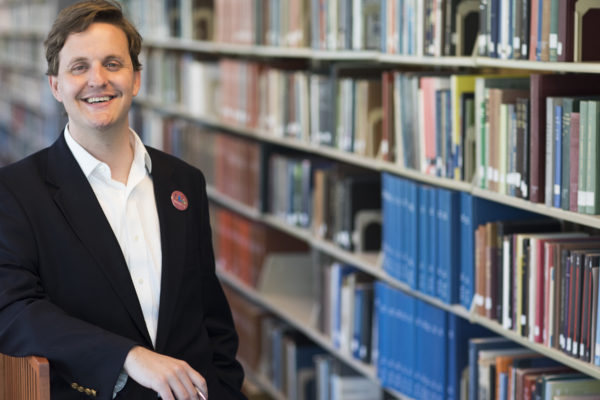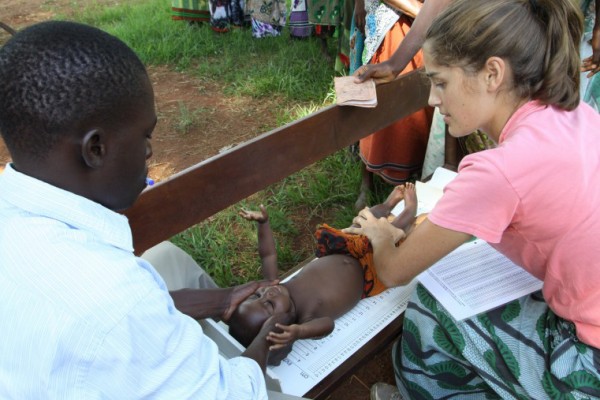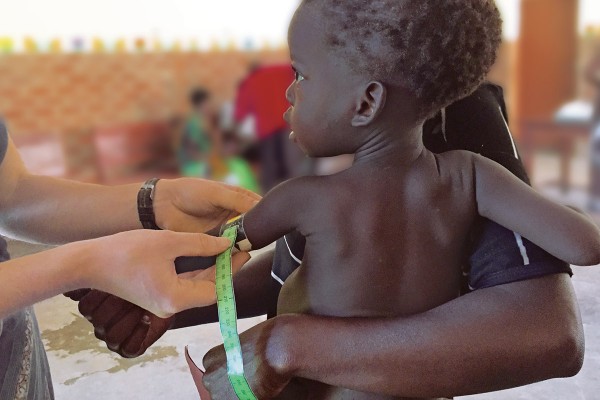There is medical term for the condition that Zach Linneman has observed in Malawi, Sierra Leone and India — severe acute malnutrition, or SAM.
Linneman uses a different word: starvation.
“That’s what it is, plain and simple,” Linneman said. “Whatever you call it, it is a huge emergency we must address.”
UNICEF estimates that some 16 million children under the age of five suffer from severe acute malnutrition, the largest contributor to child mortality in the world. Victims experience bloating, low appetite and are vulnerable to infection.
To prepare for a career treating and studying global malnutrition, Linneman has completed the post-baccalaureate premedical program in University College in Arts & Sciences at Washington University in St. Louis. For a decade now, he has helped physicians and health organizations in Africa and India save lives and develop long-term solutions. He will continue that work during a gap year in India, then plans to attend medical school.
“The mentors and role models in my life are doctors and researchers,” Linneman said. “I saw through them that medicine is an effective and intimate way to feed the hungry and help the sick.”
Linneman first traveled to Malawi in 2006 as a rising senior at St. Louis University High School. The father of one of his best friends was Mark Manary, professor of pediatrics at Washington University School of Medicine in St. Louis and founder of Project Peanut Butter, which has established feeding centers and successful nutrition programs in Malawi and Sierra Leone. Immediately upon returning home, Linneman asked Manary if he could return.
“He said, ‘Call me in a month,’” Linneman said. “I made a note on my calendar and called him precisely 30 days later. I knew then I wanted to make this my life’s work.”
Linneman returned to Malawi for another summer and then worked two more summers Sierra Leone while an undergraduate at Washington University. The program was an incredible success: some 92 percent of participants recovered — a credit to both Manary and the local Malawians who produced and packaged the therapeutic food, recruited and educated mothers.
“My Malawian boss, a guy named Liyaka, was the son of a tribal chieftain who went to English speaking schools and had a Dutch wife,” Linneman said. “He showed me how to do business. We drove around all summer in a pick-up truck, buying food ingredients, machine parts for the factor and meeting contact. And we spent a lot of time with local officials to address practical in-country concerns. I walked away from these experiences appreciating that effective organizations are well integrated with talented leaders from the local community.”
During the academic year, Linneman was studying Chinese in the Department of Department of East Asian Languages and Cultures in Arts & Sciences. He graduated in 2011 knowing that, in all likelihood, he would apply to a post-baccalaureate program to prepare for medical school. He knew University College offered a program, but until he was enrolled didn’t realize it was one of the nation’s best, drawing top candidates from across the globe.
“The University College experience was just as outstanding as my undergraduate experience,” said Linneman, who considers University College organic chemistry instructor Rhiannon Iha among the top educators he has ever met. “This program gets purpose-driven people into medical school. I feel prepared to continue my education and do what I really care about — helping those who need it most.”



